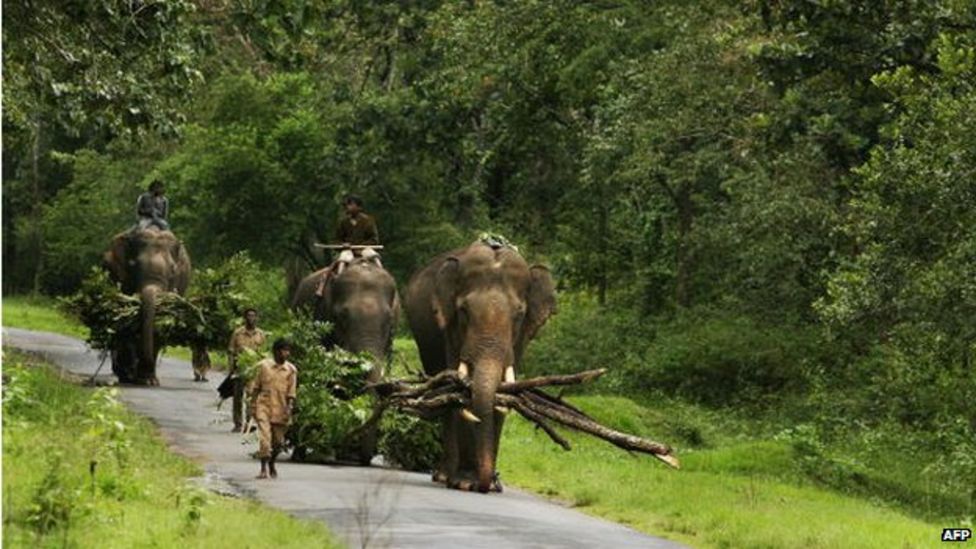In 2006, with the Forest Rights Act (FRA), India aimed to undo the historical injustices faced by communities that were stripped away from the land that they had traditionally stewarded. It envisioned the return of forest resources to the forest dwelling communities that had depended on these resources for habitation, livelihood, and other socio-economic needs. However, in the last fifteen years, efforts to thwart any progress made under the Forest Rights Act, 2006 have been ever-increasing and overwhelming. It is paradoxical to note that at the bedrock of these violations are the very people who were entrusted with the implementation of the FRA – the bureaucrats. Even today, it is not hard to find laws and legislations that harbour a dated colonial essence, or a state government’s new rules that are in complete violation of the spirit of the FRA. So, why are the officials of this entrenched Indian Forest Department reluctant to lose control of the forests and its products? This article briefly attempts to explore the reasons for the languid impact of arguably one of the most well-intentioned steps towards empowering communities – the Forest Rights Act, 2006, with an emphasis on transit permits.
In the 1960s, Gordon Tullock and James M. Buchanan championed the insights that surface when foundational economic principles are used to explain happenings in politics. Even a cursory glance at Public Choice Theory, or simply Public Choice as it came to be called, gives far-reaching insights into the existence of these contradictory rules, and the behaviours of politicians and bureaucrats with respect to forests and forest resources in India.
Using the framework of the 3I’s – Incentives, Information, and Interest – Public Choice connects the dots between a flawed political system and faulty incentives. An assumption of the benevolence and impartiality of all bureaucrats precedes any welfare economist’s argument; bureaucrats only put to practise the legislators’ decisions with candour. However, Public Choice points to the futility of expecting extraordinary benevolence and impartiality from bureaucrats. Within the constraints on their power, they attempt to maximise their own ambitions and turf. Thereby, when a monumental legislation like the Forest Rights Act is put into place, which threatens to limit the powers or turf of bureaucrats (in this case, transfer of power from Forest Departments to Gram Sabhas), there is a palpable opposition from them. One way in which this opposition has manifested itself is in the use of transit permits.
Let’s understand what transit permits mean in the first place. As is suggestive from the name, transit permits are essentially documents permitting the carrying of forest produce out of the area where it grows. Transit permits are a prime example of an institution that came into existence in colonial times with Indian Forest Act, 1927, and still lingers in what can only be described as a colonial hangover. This is explained by the fact that the Indian Forest Act of 1927 oft-borrowed from the Indian Forest Act of 1878, which is why at the centre of it were only guns and guards to gate-keep indigenous people and local communities from the forest resources they had traditionally stewarded. Under Section 41 of the Indian Forest Act, 1927:
Power to make rules to regulate transit of forest produce —
(1) The control of all rivers and their banks as regards the floating of timber, as well as the control of all timber and other forest-produce in transit by land or water, is vested in the 1 [State Government], and it may make rules to regulate the transit of all timber and other forest-produce.
(2) In particular and without prejudice to the generality of the foregoing power such rules may—
(a) prescribe the routes by which alone timber or other forest-produce may be imported, exported or moved into, from or within 2 [the State];
(b) prohibit the import or export or moving of such timber or other produce without a pass from an officer duly authorised to issue the same, or otherwise than in accordance with the conditions of such pass;
Thereby, for nearly fifty years after Indian independence, the Indian Forest Department controlled the transit of forest produce using permits. This changed with the Forest Rights Act, 2006. With this, a committee formed by Gram Sabhas could issue transit permits themselves over the areas that they have Community Forest Resource (CFR) Rights, instead of having to approach the state forest departments. In essence, Gram Sabhas now had the onus of what they choose to do with the Minor Forest Produce (non-timber forest produce of plant origin); transport and sell it in a way that seems suitable to them, and draw up conservation and management plans and integrate them with the plans of the respective state (if considered necessary).
While this was a foundational step towards empowering communities, the reality is far from hunky-dory. Deliberating in the framework that we have established so far, it is hard to imagine that this transition of power from bureaucrats of the forest department to Gram Sabhas has been smooth. State forest departments still intervene to hinder the exercise of community rights. For instance, owing to the Kendu leaf being a nationalised product of the state of Odisha, the villages of Naupada and Dekhnapada faced troubles in the issuance of transit permits, despite having received their CFR rights years prior (Kukreti, 2018). Another recent example that comes to light in this regard is the Forest Produce Rule 2020 that was enacted in Jharkhand. The Forest Produce Rule 2020 limits the power that had been vested in Gram Sabhas by exempting the need for transit permits only when using the forest products domestically (Toppo, 2020). This has been interpreted to mean subsistence for these local communities. While the idea of the subsistence way of living is often romanticised, a voluntary movement towards it is hardly observed. Therefore, while the Forest Rights Act continues to empower these communities in giving them the liberty to conserve and manage the Minor Forest Produce in their areas, limiting use to subsistence is restraining and is against the spirit of the FRA.
An analysis of the implementation of the Forest Rights Act with a lens of Public Choice Theory highlights the token of transit permits that is used by forest departments to circumscribe the power of the Gram Sabhas. The solution that Public Choice Theory suggests for this is the exposure of bureaucratic incompetence, as Eamonn Butler writes. In my sense, the more these contradictions in legislation come to light, the lesser a chance there is of their repetition in different states. After all, the potential of the Forest Rights Act is unfathomable, but the implementation has a long way to go.
Read more: The budget has got its building blocks more or less right
Post Disclaimer
The opinions expressed in this essay are those of the authors. They do not purport to reflect the opinions or views of CCS.






